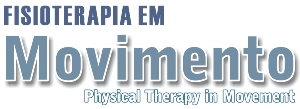INTRODUCTION: The sensorial deficits presented at Down Syndrome may interfere in the posture control, movements, balance and coordination. Therefore, it the physiotherapy intervention is important. However, the literature is scarce regarding the aquatic therapy effects. OBJECTIVE: To investigate the effectiveness of hydrokinesiotherapy such as a complementary method of physiotherapy treatment in the acquisition of gross motor skills in an infant with Down Syndrome and hearing deficiency. MATERIALS AND METHODS: One infant with Down Syndrome, male, 1 year and 4 months old, with severe bilateral hearing deficiency participated of this study. The gross motor development was assessed by Alberta Infant Motor Scale (AIMS), which was applied in pre-intervention and in Step I and II post-intervention. Step I was physiotherapy intervention on the floor based on Neuroevolutive Concept. Step II was Neuroevolutive Concept plus hydrokynesiotherapy. Both the steps were conducted in 24 sessions. RESULTS: After Step I and II, there was an increase of three points in total score of AIMS, ranging from 11 to 14 and from 14 to 17, respectively. After Step I, one point increased in postures supine, sitting and standing; one and two points increased in the posture prone and sitting respectively, after Step II. CONCLUSION: Hydrokinesiotherapy improved the sensorial stimulation and control and strengthening of muscles of the trunk, reflecting a better motor performance of antigravity postures, prone and sitting.
Down Syndrome; Motor rehabilitation; Hydrotherapy; AIMS

